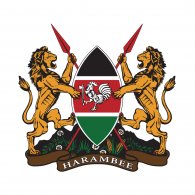Theatre of the absurd in ‘fourth arm of government’
By Emeka Mayaka, March 17, 2023Prof Yash Pal Ghai calls the 14 commissions and two independent offices created by the 2010 Constitution the “fourth arm of government.”
The institutions were designed to provide checks and balances as well as prevent the excesses of the main branches of government.
There are supposed to be independent and the Constitution deliberately shields them from interference from the Executive in discharge of their mandate.
They are not subject to direction or control by any person or authority. In fact, the Supreme law dictates that they are subject only to the Constitution and the law.
We are talking about the Chapter 15 commissions that include the Independent Electoral and Boundaries Commission which is considered the mother of all.
The Constitution has created two independent offices, that of the Controller of Budget and Auditor General. It is easy to forget the circumstances under which offices such that of the Controller of Budget, Salaries and Remuneration Commission and Commission of Revenue Allocation came into being.
They were a remedial response to a draconian system of governance that entrusted distribution of national executive. These critical institutions are tailored to ensure justice, equity and prevent abuse of public resources by State bureaucracy.
Article 249 of the Constitution stipulates that their major responsibilities are to protect the sovereignty of the people; to ensure that all State organs observe democratic values and principles; and to promote constitutionalism.
Members of these offices draw their salaries from the Exchequer and are protected against legislative reduction.
Professor Bruce Ackerman describes the institutions as the “integrity branch” of government.
Collectively, they latently operate at the same level as the Executive, Judiciary and the Executive.
The same constitution is also succinct that they exercise delegated authority from the people to whom are accountable.
These creatures make decisions with far reaching implications on national cohesion, equity in resource sharing and national stability and security. For instance, one of the country’s influential politicians has inspired countrywide demonstrations hanging on decisions and conduct of the IEBC.
But probably other than the perpetual spotlight on the polls agency, little scrutiny goes into the conduct of the heads of other commissions. The enduring question is: Are our independent offices and commissions really independent of political, commercial and ethnic interests?
Can bodies which are recruited by a panel of vested interest groups yield an independent commission?
Take the case of the fuss sparked by Margaret Nyakang’o, the of Controller of Budget. First things first.
The Office of Controller of Budget is an independent office established under Article 228 of the Constitution with the core mandate being to oversee implementation of the budgets of the national and county governments by authorising withdrawal from public funds. The major emphasis here is independence.
It should, therefore, be alarming to drafters of the Constitution when Nyakang’o tells members of Parliament she was coerced to approve release of public funds in violation of the Constitution.
She claimed that former Finance Cabinet Secretary Ukur Yatani had pushed her to approve Sh6 billion to cater for the exit of Helios Investment in Telkom Kenya threatening her that in the event she failed, she would receive a phone call. Of course, Yatani dismissed Nyakang’o, saying she was managing the “uncertainties of regime change.”
We are dealing with an office holder who is supposed to have acted independently claiming that the converse was true.
Kenyans pay heavily to sustain the Chapter 15 commissions but remain most ambivalent in calling them to account. The result is the theathre of the absurd that taxpayers continue to witness in these agencies.
The independence of the IEBC has been the subject of many public inquiries.
The salaries commission often kowtows to the whims of the political elite at the expense of other cadres of workers. Though not a chapter 15 creature, the dropping of cases touching on the governing class by the Directorate of Public Prosecutions, another independent institution, continues to raise eyebrows given the predictable pattern.
Cartels mock the Ethics and Anti-Corruption Commission with gleeful pleasure. Anti-graft officers collect bribes with abandon.
Despite the huge mandates on the “fourth arm of government”, its conduct raises questions.
—The writer is the Political Editor, People Daily
